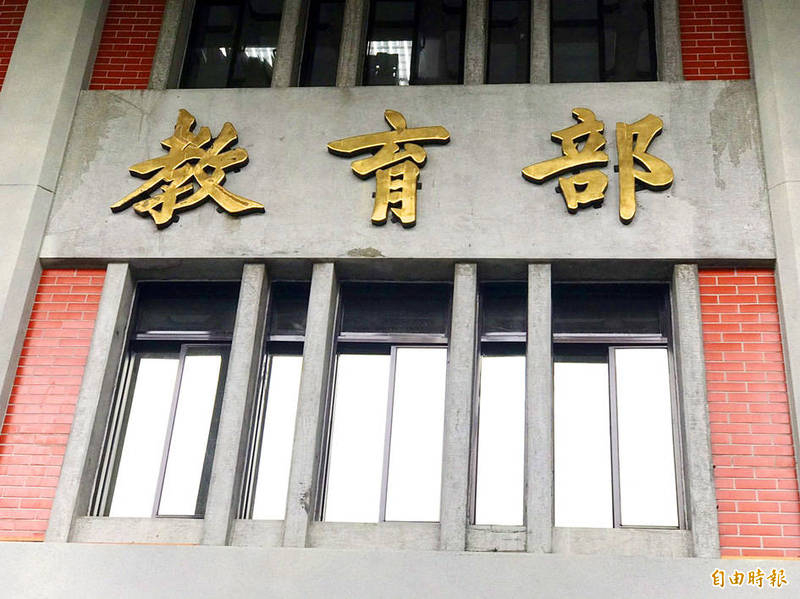《TAIPEI TIMES》 Ministry to push English at universities

The entrance to the Ministry of Education is pictured in Taipei in an undated photograph. Photo: Rachel Lin, Taipei Times
OPTIMISTIC GOAL: The Ministry of Education plans to choose four schools that would be models for the policy, which some university presidents said would pose challenges
By Rachel Lin, Wu Po-hsuan and William Hetherington / Staff reporters, with staff writer
The Ministry of Education aims to have 90 percent of doctoral degree courses, 70 percent of master’s degree courses and 50 percent of undergraduate courses at four universities taught in English within the next few years, a source said yesterday.
The ministry last week held a meeting with the heads of several universities, from which it plans to select four schools that would serve as a model for the policy, the source said.
The ministry had in the past attempted to increase the number of courses at public universities taught in English to attract international students, but hit a stumbling block as not enough lecturers were proficient in English, the source said, adding that later attempts to hire more foreign lecturers were met with resistance.
The source said that less than 30 percent of graduate-level courses at the nation’s universities are taught in English.
“While it is a fact that students and teachers must improve their English, requiring locals whose mother language is Mandarin to study in English is too far removed from their culture,” National Tsing Hua University president Hocheng Hong (賀陳弘) said.
The situation in Taiwan could also not be compared with that in Hong Kong or Singapore, both of which have long histories of colonization under the British, he said.
He also outlined the challenges of increasing the number of courses taught in English over a short period, saying that only one-third of his university’s graduate courses are taught in English, and only 15 percent of its undergraduate classes are taught in English.
Internationalizing the school should involve a whole set of measures, he said, adding that increasing the use of English would necessitate first increasing the number of foreign teachers and foreign students.
“Whether universities can push strongly for bilingualism would depend on the students’ English-language foundation,” National Pingtung University president Guu Yuan-kuang (古源光) said. “The ministry would need to first improve English-language skills at the elementary and junior-high school levels,” he said.
Yuan Ze University president Wu Jyh-yang (吳志揚) said that his school had already been promoting English as the language of instruction for 10 years, and that it teaches one-quarter of its classes in English.
However, further increasing the number of courses taught in English without first improving students’ English-language ability could negatively affect their professional competency, he said.
In related news, National Sun Yat-sen University plans to start a 10-year program next year to transition to English as the language of instruction, starting with its electrical engineering; mechanical and electro-mechanical engineering; and chemistry programs, the university said on Friday.
It hopes to have all of its courses taught in English by 2030, it said, adding that 20 percent of its instructors are foreigners.
“National Sun Yat-sen University is actively working to meet the needs of Taiwan’s industry as it seeks to globalize,” university president Cheng Ying-yao (鄭英耀) said, adding that it also hopes to attract outstanding foreign students.
The 10-year program would be introduced in three stages, with the first beginning on Feb. 1 next year, when the school plans to have a minimum of six courses per program taught fully in English, university provost Lee Chih-peng (李志鵬) said.
It would then aim to have an additional four courses taught in English per department per year, he said.
新聞來源:TAIPEI TIMES
















